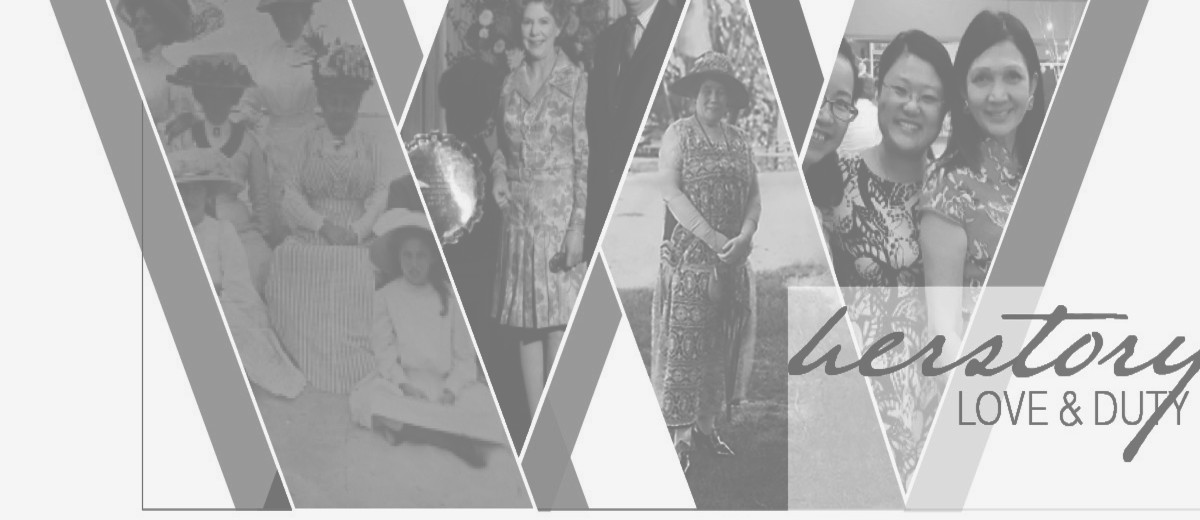Person
ContributeRosa Ware was the Mayoress of the City of Adelaide from 1898-1901.
Early Life
Rosa Henrietta Ware was the second daughter of Rosa and Henry Haussen. Rosa senior gave birth to five daughters and a son before Henry’s untimely death in 1870. Four years later she married publican, brewer, and politician Frederick Bucknall, with whom she had another three daughters and one son. After Frederick died in 1896, she married one more time and moved to Western Australia.
The younger Rosa married only once – to brewer Arthur Wellington Ware, on 11 March 1884. Rosa gave birth to a son, Colin, in 1886 (he did not survive). There followed in quick succession another eight children in eleven years: Alex, Vera, Charles, Fannie, Ileene (who also died), Thomas, Daphne and Madeleine.
The family lived in Molesworth Street, North Adelaide.
Contributions
On 5 January 1899, reporter ‘Gertrude’ wrote in the contemporary journal Quiz and Lantern:
I hear that our new Mayoress (Mrs. Ware) is likely to entertain a great deal as soon as the weather permits … The Mayoress has been described to me as liking plenty of excitement and being fond of company, so we shall have to make ourselves agreeable in view of rewards to come.
Rosa’s first official reception was held the following month, on Friday 24 February 1899. The South Australian Register reported the Town Hall was filled by ‘a brilliant assemblage, composed principally of ladies’.
Everything was bright and gay, the company included the most distinguished of Adelaide society people, and the reception may be regarded as one of the best and most successful social functions held in the city for some time … Afternoon tea was dispensed in the banqueting hall, which left the ordinary refreshment room at liberty for other liquidations.
It appears that Rosa was the also the first Mayoress to occupy her own reception room. In March 1899 a room was renovated and the sum of £50 spent on new furnishings. The Advertiser noted:
This is an old question, an effort having been made during the regime of Mayor Tucker to set apart and furnish such a room for the Mayoress, but the scheme never bore fruit. The room is not a large one, and it will be an easy matter to convert it into a handsome reception chamber.
Later in the year, Rosa conceived the unique idea of having her own children host a children’s reception at the Town Hall. Over 1000 children were entertained on the afternoon of Wednesday 23 August. Afternoon tea was served in the banqueting room, and ‘Signor Setaro’s band discoursed appropriate music’.
It was clear that Rosa enjoyed entertaining. Only two months later a ‘juvenile fancy dress ball’ was held in the Jubilee Exhibition Building. Another 1000 children attended, with more than twice as many adults looking on.
Garden parties were also arranged at Victoria Park. It was reported that ‘between 3000 and 4000’ people attended one function in November 1900. ‘A special tram service was arranged, and the comfort of citizens was considered in every way.’
But Rosa did not confine herself to entertaining. South Australians were fighting for Britain in the Boer War, and Rosa was president of the Ladies Nursing Committee: established to assist nurses heading for the Transvaal. At a gathering to farewell six nurses on Friday 16 February 1900, the Mayoress spoke:
Ladies and gentlemen, and brave nurses who have volunteered for service in the Transvaal––I am exceedingly proud of the opportunity I have of saying a word of farewell to the ladies who so gallantly volunteered to act as ministering angels to the sick and wounded of our forces in South Africa … To those ladies here amongst us, who echo the feelings of this meeting when I tender to them our mingled feelings of love and admiration, and on behalf of the ladies’ committee I wish them God-speed and a safe return.
Just ten days earlier Rosa had been invited to lay the foundation stone for the new Central Market in Grote Street. And one can imagine Rosa’s excitement in preparing for the Royal Visit of 1901. She presided over a ladies’ subcommittee of the Citizens’ Duke and Duchess of Cornwall Reception Committee. On Saturday 27 April 1901, The Advertiser reported:
A largely attended meeting was held in Brookman’s Building, Grenfell Street, on Friday afternoon, and it was decided to embellish the Queen’s statue and entertain sick, poor, and afflicted persons in honor of the Royal visit. The inmates of the Destitute Asylum, the poor in the slums and by-streets of the city, and the aged and infirm will all have their dreary lives brightened during the stay of their Royal Highnesses in Adelaide.
As one of her last official duties, on 19 November 1901 Rosa was invited to ‘turn on the light’ at the official opening of the Electric Light and Traction Company of Australia. The Mayor was also present, and thanked the company’s director, the Hon. G Brookman MLC, for the honour bestowed upon his wife.
Personal Note
In 1909 the family left for Queensland, where Arthur took a number of hotel licenses. Rosa died at Southport, Queensland, on 29 November 1915. Arthur died in 1927.


CommentAdd new comment
Quickly, it's still quiet here; be the first to have your say!